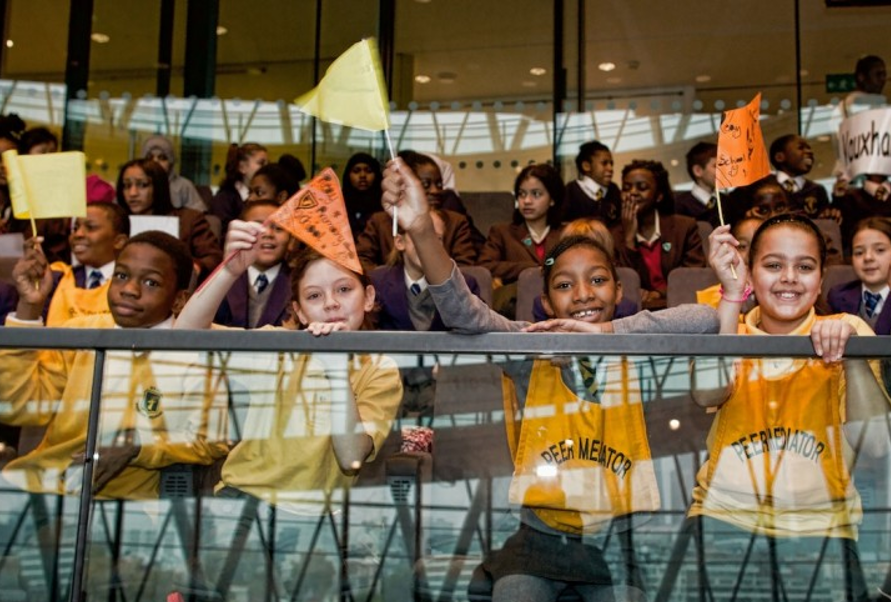Every school in Britain should have peer mediators, Quakers say
Following widespread success, Quakers want every school in Britain to have a team of peer mediators ready and able to resolve conflict.

Schools using peer mediation find that it reduces student conflict and creates more quality learning time. Pupils have more confidence and better communications skills.
More than a hundred schools already have thriving schemes of conflict resolution for young people, by young people. They are supported by a network of organisations including Quaker charities and local mediation services.
Now, thanks to a grant from the Sir James Reckitt Charitable Trust, students across the country could be offered the same opportunities.
[QUOTE-START]
It takes a lot of patience, listening and critical thinking
- Wajeeha, peer mediator, Oakgrove Primary School
[QUOTE-END]
The grant has allowed a new post of peer mediation national co-ordinator to be created, working with key partners such as the Civil Mediation Council (CMC) and Scottish Mediation to engage schools directly, offer capacity building and advice.
“Peer mediation is when you help other people solve a problem or conflict between them. I listen to people's point of view and then we find a solution to help them both be happy.
“I really like helping them. It takes a lot of patience, listening and critical thinking," said Wajeeha, a peer mediator from Oakgrove Primary School in Glasgow.
Ellis Brooks, peace education co-ordinator at Quakers in Britain and chair of the newly formed peer mediation working group of the CMC, said: “There is currently enthusiasm for conflict resolution in the criminal justice system, so this is a time of opportunity.
“But conflict resolution shouldn't be a last resort, it should be something we are all equipped with for everyday life."
Quakers work to build a more peaceful world, including facilitating peace education across the country.
There are many examples of good practice, including peer mediators from Greystones Primary, Sheffield, trained by a Quaker-rooted charity who were recognised for their work in resolving conflicts at the National Mediation Awards last December.
The scheme at an Exeter school, run by a Quaker teacher, was cited in the school's last Ofsted report: "Older pupils act as peer mediators to help younger pupils make the right decisions during social times. This supports all pupils to conduct themselves well."